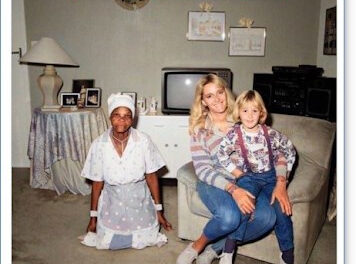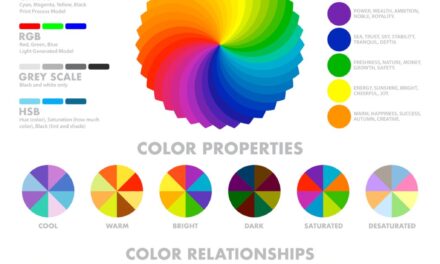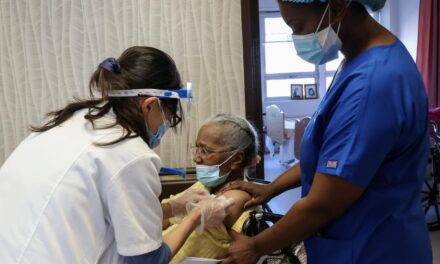It took Miriam Margolyes 80 years to write her memoir. Two years on, the actor, documentarian and raconteur extraordinaire has written another – of sorts. Whereas This Much Is True was a (relatively) conventional autobiography, Oh Miriam! is more of a self-help guide: Margolyes’s manifesto for a fulfilled life. Why did she feel the need to write it? “I have to say the reason I did it is exactly the same reason I did the first one. They made me an offer I couldn’t refuse.” An advance of £250,000, seeing as you’re asking. “I didn’t particularly want to do it. But I thought I cannot turn down such a huge amount of money because I’m going to need it for carers. So I wrote it.”
Margolyes loves to tell it straight. And the older she gets, the straighter she tells it. She’s also famously filthy – perhaps most memorably telling the story, on Graham Norton’s show in 2011, of how, when riding her bike as a student in Cambridge, she stopped at the traffic lights by an open car with an American soldier inside. “Something crazy took hold of me. You know that feeling. And I said, ‘Would you like to follow me to my college and I’ll suck you off?’” Sure enough, he followed. And very grateful he was, too. “‘Can I come back next week and bring my friends?’ he asked as he left.” What makes her so funny is that she tells these stories in a cut-glass, upper-class RP – every magnificently enunciated syllable sharp as a stab.
She’s worried that Oh Miriam! is a little strait-laced. “I don’t think it’s as rude as my first book, therefore I suspect it won’t do as well. But I think the things I say in it are again absolutely true, and perhaps more serious. And I’m glad of that. I don’t just want to be a foul-mouthed old biddy. A potty-mouth as I’m often called. Because I’m more than that.”
It’s true. She is more than that. But she’s also worrying unnecessarily. With chapter titles such as The Joy of Bottoms, Adventures in Heavy Petting and Always Be a Cunt, I tell her fans of mucky Miriam are unlikely to feel short-changed. “Hehehe! Good, because that’s part of who I am.” And now, she says, is hardly the time to start holding back, whether it’s on Israel and Palestine, the Tories and Labour, Warren Beatty and Mick Jagger, or circumcision and smegma – just a few of the topics we touch on over the next couple of hours.
“What can I do? I have to say what I believe to be the truth,” she says. “Now I’m 82, I don’t give a flying fuck. If I want to say something, I’m going to say it.” At 72 or 62, would she have given one? “Oh no. I’ve always been like this. The only time I’ve been moderate with expressing myself is when I was in America because my adorable Jewish agent said [she adopts a male, nasal, Jewish-New Yorker voice], ‘Miriam, you’re in America now, you can’t talk about being gay and all that stuff, just button up and don’t wear shorts.’” She did button up, hid the true Margolyes, and she failed – her 1992 TV series Frannie’s Turn was cancelled after five episodes.
There is one other time I remember Margolyes being moderate with her expletives – on Desert Island Discs in 2008. Back then, Margolyes was a successful character actor and a regular in costume dramas such as Vanity Fair and Little Dorrit. There were also legendary cameos (Lady Whiteadder and Infanta Maria Escalosa in Blackadder), appearances in the Harry Potter films as Professor Sprout and moments of true glory (a best supporting actress Bafta for Martin Scorsese’s The Age of Innocence in 1994). She has a fabulous gift for accents, voicing everything from animated movies (the border collie Fly in Babe) to lubricious commercials (Manikin cigars in the 1970s) and soft porn (Sexy Sonia: Leaves from my Schoolgirl Notebook).
Margolyes was funny and phlegmatic on Desert Island Discs, but there was something profoundly sad about it, too. “I’m not happy with what I’ve given to the world,” she told Kirsty Young. “I think I’m underused, undervalued and slightly despised. I wanted to do Shakespeare, be at the National, admired as an actress. But at the moment I’m just smiled at as an actress. I want to hurt and astonish as an actress.” She said if she was lucky, she could stretch her career for another 10 years.
That was 15 years ago. Today, she has never been so popular and in a way she never expected to be – as a personality, with multiple new audiences. And it probably all started with the Graham Norton story. Not only did she become a desirable (if high-risk) chatshow guest, she was invited to make documentaries. Over the past five years she has made TV series about Britain’s obesity problem and her own weight struggles, confronting her fear of ageing and dying, and taking road trips through America, Australia and Scotland.
I remind her that she was a model citizen on Desert Island Discs. “Well, I wouldn’t swear on Radio 4! That would be terrible.” She says her parents would have been horrified. Although long gone, they continue to play a huge part in her life. For all her rabble-rousing and dirty talk, she remains desperate to please them. “I had wonderful parents, and they have never let me go and I have allowed them not to let me go.” Is that why she still observes so many Jewish traditions? “Oh yes! It would please them. And I didn’t please them by being a lesbian. I didn’t give them grandchildren. They wanted the whole schmear, the traditional stuff.” When she was 27, she realised she was gay. Soon after, she started dating the Australian academic Heather Sutherland and came out to her mother who was devastated. Today, she says she wishes she’d never told her. She and Heather, a history professor, have been together for 54 years.
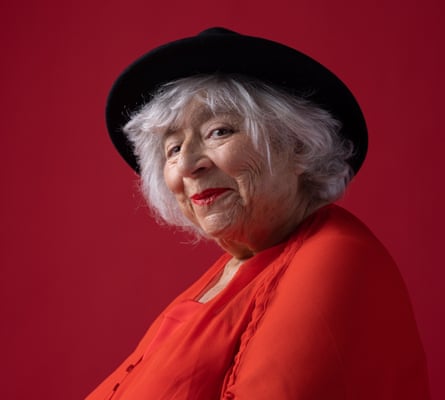
Strictly speaking, it’s not true that Margolyes would never swear on Radio 4. But to be fair, on the occasion she did, she was unaware she was still on air. Last October, she appeared on the Today programme to pay tribute to Robbie Coltrane, who had just died. On her way out, she said, “I never thought I’d be sitting in the seat … ” Presenter Justin Webb finished for her: “In the seat Jeremy Hunt has just sat in, you were about to say!” But he was wrong. “When I saw him there, I said, ‘You’ve got a hell of a job, best of luck.’ What I really wanted to say was, ‘Fuck you, you bastard’ but you can’t say that.” She was quickly ushered out, with apologies to listeners.
For me, it was one of her greatest performances because it was spontaneous. On chatshows, she’s there to outrage, but there was nothing planned about this. I expect her to revel in the memory, but she looks sickened. “I didn’t know I was on mic. I nearly shat myself when I found out. I was practically in tears. The girl who showed me to my car will tell you. I was shaking with shock. Because I would not swear on Radio 4.”
It gave lots of us pleasure, I say, because it was from the heart. “It was from the heart because I said what I felt, but it was a bit of a shock. The producers were delightful about it and that made me feel better because I’m not trying to offend people, I’m trying to change people’s minds, to make them see that the sort of thing going on in parliament and Israel and America is not acceptable. I’m angry and I think other people should be angry, and that’s why I behave like that. Actually I’m an incredibly moral and well-behaved person in public with other people. I don’t want to embarrass and upset people. That’s absolutely not my agenda.”
Margolyes is Zooming from Broken Hill, a mining town in New South Wales (she has dual citizenship of Britain and Australia) where she’s making another documentary series – though it’s all hush-hush. Zoom seems to make her personality even bigger, if that’s possible. She’s right here in my living room demanding to know everything, and answering with unsparing honesty. She takes one look at me and smiles. “Are you Jewish?” I am, as it happens. “Where are you?” In north London, I say. And she’s off. Margolyes loves to talk about her Judaism – how important the traditions are for her, how she never works on Yom Kippur and how fellow Jews regard her as a heretic because she is so critical of Israel. “I think north London Jews feel I should keep my mouth shut and that I am a terrorist.” In Oh Miriam! she says the living person she most despises is Israeli prime minister Benjamin Netanyahu for “fanning the flames of conflict between Israelis and Palestinians, and removing the chance of peace”.
Margolyes grew up in Oxford, the only child of a Scottish doctor and a mother who was an artist and let out flats to students (Margolyes did the cleaning). She says she was spoiled to bits – not materially, but with love. “My parents loved me beyond any love you can imagine. It made me a bit conceited, but it taught me to expect love from everyone.” She attended the prestigious Oxford High school and graduated from Cambridge with a degree in English. At university, she performed in the 1962 Footlights show, alongside future members of Monty Python and the Goodies. As the only girl in the show, she says they treated her with contempt. “They sent me to Coventry. I would go on stage, get the laughs, then I’d come off and was completely ignored.” Did she ask why they behaved like that? “No, I was too crushed. I think they thought I was too full of myself because in those days women were literally not allowed to join the club. Graham Chapman and John Cleese were poisonous. John was a brilliant comedian in his day, but something has turned. Like milk, he’s gone sour. He’s an irrelevance.” She does single out two Pythons for praise, however. “Michael Palin is completely different. He’s a darling, a special man. And Eric Idle is lovely – a friend of mine. He’s incredibly intelligent and very funny. Cleese is a puny tadpole of a person.” Despite this, she loved her time at Cambridge, and says this was when she truly became alive. After university, she moved to London, selling encyclopedias and doing market research for two years before getting a job with the BBC Drama Repertory Company. Since then she’s rarely been without work.
Virtually everything in her life has been shaped out of love for her parents or in opposition to their views, or an unlikely mix of the two. Even her obsession with blowjobs. “Mummy and Daddy said, ‘You behave like a lady, you don’t sleep with people before you’re married’ and, rather like President Clinton, I kept to that.” She looks at me, thoughtfully. “I have a terrible gag reflex when I go to the dentist and sometimes I think that’s the punishment for sucking off.” I tell her I have a theory about her obsession with fellatio – I think you just like saying “sucking off”. She giggles. “Oh yes! It’s funny. Because you can see it happening when you say that. Fellatio could be the name of a road, but sucking off is only sucking off.” She comes to a sudden stop. “I’m just going to fart. That’s it. OK, go ahead.”
Margolyes doesn’t drink and has never taken drugs. “I’m not interested in something you can inhale, take into your body, that changes your mind. I don’t like it.” Is she a prude in some ways? “Oh definitely. Definitely. Someone I recently worked with has a very committed relationship with a woman and he made an assignation, and I was deeply shocked and said so. And everybody thinks, ‘Oh, fuck off, Miriam.’” What kind of assignation? “Well, he met a woman and made a date with her with a view to a horizontal relationship.” Didn’t you cheat on Heather once? “Yes, I did, and I wouldn’t do it again.” It caused huge turmoil, she says. “Don’t gamble with your happiness. Adultery is for fools.”
Margolyes says she’s changed her attitude to lots of things in her life while her parents never did. Can she give an example? “Yes. I moved to the left.” Pause. “And I don’t believe in circumcision. That’s a big thing. I only realised I didn’t like it recently. I don’t like circumcision because you are mutilating a child.” And within a beat, she’s on to smegma. “I don’t think circumcision in itself is a bad thing. In fact it’s probably a good thing because we lose the problem of smegma which is a nightmare for many women.” Like many celebrities, she makes money using the Cameo app, which provides personalised videos for fans. “In my Cameo messages, I often give instructions to young men to pull back their foreskins and give it a good wipe over because it’s very important. But nobody actually seems to say that any more, so I think that’s one of the good things I’ve done in my life; to bring smegma to the forefront of people’s knowledge.”

But, she says, her ambitions extend beyond smegma. She cites her friend Esther Rantzen as somebody who has really made a difference. “Esther founded Childline. She’s created an organisation to challenge loneliness for old people. She’s made a difference to people’s lives. I haven’t done that. I’ve had a lovely time and I’ve made people laugh, I hope, but I’m not sure I’ve got the intellectual fierceness I would like to have.” She says her approach is too scattergun – within a single thought, she can rage against climate change, Brexit, factory farming and “that bastard Rees-Mogg who had the impudence to say the victims of Grenfell lacked common sense”. “The thing is I care about a lot of things, I’m not focused enough on one or two. But I hope to go to Israel and Palestine to make a documentary. Hopefully I’ll be well enough. That will mean I’ve done my duty.”
Margolyes may be struggling physically, but workwise she’s more active than ever. The way you’ve made a difference, I suggest, is as a role model for older people. “Well, that’s good. I’m not exactly vain, but I don’t like the look of myself on television. That’s why I never watch myself. And when I was doing this documentary in Australia, I said to my brilliant director, Helen Barrow, ‘Don’t film me going upstairs with sticks and making a mess of it, I don’t want people to see me looking like that.’ And she said, ‘Well, you should, Miriam, because it gives people confidence that if you look like that and you can still do it, then they can.’”
But she is struggling to come to terms with her increasing frailty. “I do feel a waning of powers. I’ve got spinal stenosis so I can’t walk properly, and many of my dear friends have died, so I’m conscious of time running out. And that makes me slightly hysterical at times because I want to try to do the things I have to do.” At the moment, someone from the documentary team is staying with her to help look after her. “I’m afraid of losing my physical independence. My feeling of disablement has made me make more demands because I get frightened. And that is a new thing. I was afraid of failure before. Getting bad reviews or not being employed. I think all actors have that. But now there is this extra anxiety. The thing that scares the shit out of me is that I might have a stroke because my mother had one and I saw what it did.” Does it scare her more than death? “Yes, and I’m irritated that I should be afraid. Why can’t I just go through and whatever happens, happens? Because you can’t do much about it.”
after newsletter promotion
One of the things she’d most like to do now is live with Heather on a permanent basis. Despite being together for 54 years, they have never done so. In 1973, she bought a home in Tuscany. “And that’s where I want to end up with the person of my life, together.” But because of Brexit, they can’t do so. “One of the reasons I hate Boris Johnson so much is because he’s fucked about with my life. Brexit means we can’t be in the house I bought 50 years ago for longer than 90 days in every 180. Brexit is an appalling catastrophe. A deliberate appalling catastrophe for which the Tories should fry in hell.”
Is Heather very different from her? “Ah, completely,” she says proudly. “She’s grown-up and ironic and watchful and quiet. And she does not like to be talked about.” Margolyes used to see a therapist who told her she was basically a five-year-old but with a bit of work she could mature into a 12-year-old. Did she succeed? “She said when we stopped, ‘I think you have made it to 12, but you might need top-ups.’” Has she had them? “Sadly no, because she died not long afterwards.” Does Heather bring out the little girl in her? “No, I’m more grown-up with Heather because she won’t have it if I’m not. She’s tough and she’s good for me. I’m a little afraid of her in some ways.” In what way won’t she have it? “All the attributes that are self-regarding she simply withdraws from. She’s just not going to play that game.”
What does she love about you? For once Margolyes is reduced to silence. “I’m lovable,” she eventually says. “That’s what she loves. The bit of me that is vulnerable and kind and intelligent and funny.”
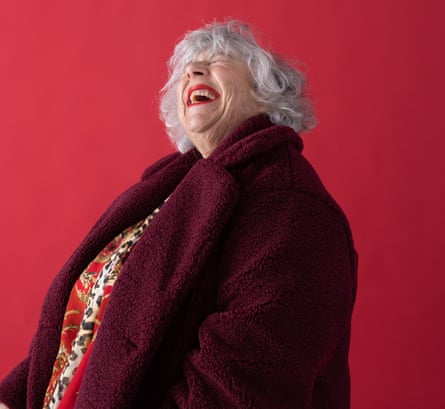
In Oh Miriam! (so called because she’s heard it said so many times), she makes it clear she has more time for women than men: “Most men are arseholes – not all, and the young ones are better.” She describes Boris Johnson’s father Stanley as “the worst old person I know … a complete arsehole”. Why? “I had to live with him for a week in a programme called The Real Marigold on Tour. We went to St Petersburg. Sheila Ferguson, Wayne Sleep and the wonderful Bobby George who is a Tory, a working-class Tory, but a diamond.” She stops to congratulate herself on her tolerance. “I think what’s good about me is I can see beyond the fact that he’s a Tory to the goodness of the man.” And Stanley Johnson? “It was a real eye-opener that he could be as rude, as scornful, as selfish as he was. He was utterly disgusting and shameful, and I have no qualms about saying so.”
Nor does she have any qualms about naming the other men who have behaved badly in her presence. Take Warren Beatty. She briefly appeared in his 1981 film Reds, and claims of the first time they met: “He was sitting at his desk and I was standing in the doorway. He looked me up and down and said, ‘Do you fuck?’ I wasn’t having any of that, so I shot back, ‘Yes, but not you.’” Did she regard it as an abuse of his power? “Well, I don’t think he should do it, but men are like that. If they have a chance to have a fuck, they will. I think he’s probably done it to everybody who’s walked through the door.”
In 2004, she appeared with Beatty’s wife, Annette Bening, in the film Being Julia. Did she tell her what she thought of Beatty? “Oh, of course I did! I can’t remember exactly what I said. I probably said he was a bit of a pillock. But when he came to visit Annette, they invited me to supper with the family, and their relationship seemed to be gorgeous. She’s a terrific person.”
Mick Jagger also gets a dishonourable mention in the book. In 2001 she appeared on stage with his then girlfriend Sophie Dahl in The Vagina Monologues, and Jagger would visit her at the theatre. “He used to come backstage and he was just a miserable cunt. He was unfriendly, and I don’t think he treated her very well. He was much older than her and I thought he was up himself. I never listen to that kind of music anyway. I’m a musical snob, so I wasn’t impressed by him.”
Then there’s Arnold Schwarzenegger, with whom she made the movie End of Days. She says he was so offended at her letting slip a fart in rehearsals that when they were filming her death scene, as he had her pinned underneath him, he “farted, loudly, purposefully and malevolently, directly into my face – and then laughed uproariously”. She wasn’t impressed, and claims: “He was a privileged groper. Not to me because he didn’t fancy me, and I don’t think he liked me. He’s a very boring man.” (Schwarzenegger apologised this year over historical accusations that he had groped women.)
Finally, there’s the comedy actor Leonard Rossiter, with whom who she sat on the council of the performers’ trade union Equity, giving her “first-hand experience of what a horrible man he was. He was a pig. A brilliant actor, but he was absurdly racist, absurdly rightwing, and he was personally rude to people.”
But, she says, she has worked with so many people she loved, many of them now dead. Who does she miss most? She mentions Roger Hammond (who appeared with her in the TV adaptation of Dickens’ Little Dorrit) and Sonia Fraser (who co-wrote Dickens’ Women with Margolyes, as well as directing her in the one-woman show in which she plays 23 characters). “She was my mentor and teacher. I also miss Ken Dodd very much. He was a genius, an intellectual in a way, and very human. He loved connecting to people. I miss Barry Humphries. He was extraordinary, and I knew him from when he was 17, before the greatness. I really do miss him.”
We talk about the self-lacerating assessment she gave of her career on Desert Island Discs 15 years ago – undervalued, underused, despised. “That was quite a long time ago,” she says quietly. Has she changed her mind? “Yes, I don’t think I’m despised. Underused? I think that’s still true. Undervalued? I think people think more of me now than they did then, but I don’t think I’m admired as an actress. I didn’t make it as an actress in the way I would have liked and think I could have. I don’t think I think I have great talent, and I allowed myself to remain fat, and that meant I was hard to cast.” Was that the main thing that held her back? “I don’t know. Look, I’m a funny-looking woman. I really am.”
She’s not thrilled that she’s probably best known as an actor for the Harry Potter films. “Harry Potter has dominated quite a lot of my life latterly and I’m always at pains to say I’ve never read any of the books or seen the films. I fell asleep when I went to the premiere of the two I was in. I’m just not interested in fantasy. I’m bored by it. But I think JK Rowling’s a bloody good writer. If you read the detective stories, they’re fabulous.”
Having said that, she’s hardly complaining. Her career has provided a good living and she is amazed how things have worked out for her in recent years. In June, she was the cover star of Vogue – posing naked, but for a few discreetly placed iced cherry buns. “That is where I was humbled. I could not believe that I was going to be on the cover of Vogue. Not a magazine I particularly respect, or read, but to be on the cover! I can’t ask for much more than I have. The affection with which people greet me is astonishing. I’m puzzled why I should suddenly have become famous and wherever I go people rush at me and say, ‘Oh my God, it’s you, I love you!’” Did people ever say that before? “No, it’s new!” She quotes Gertrude Stein who, when asked what a writer most wants, replied, “Oh, praise, praise, praise, praise, praise.” That’s what she’s wanted, too, Margolyes says. Has getting it made her more content? “Ooh yes! When people come up to you and they’re pleased just to be in your company, well, that’s a wonderful thing.”


